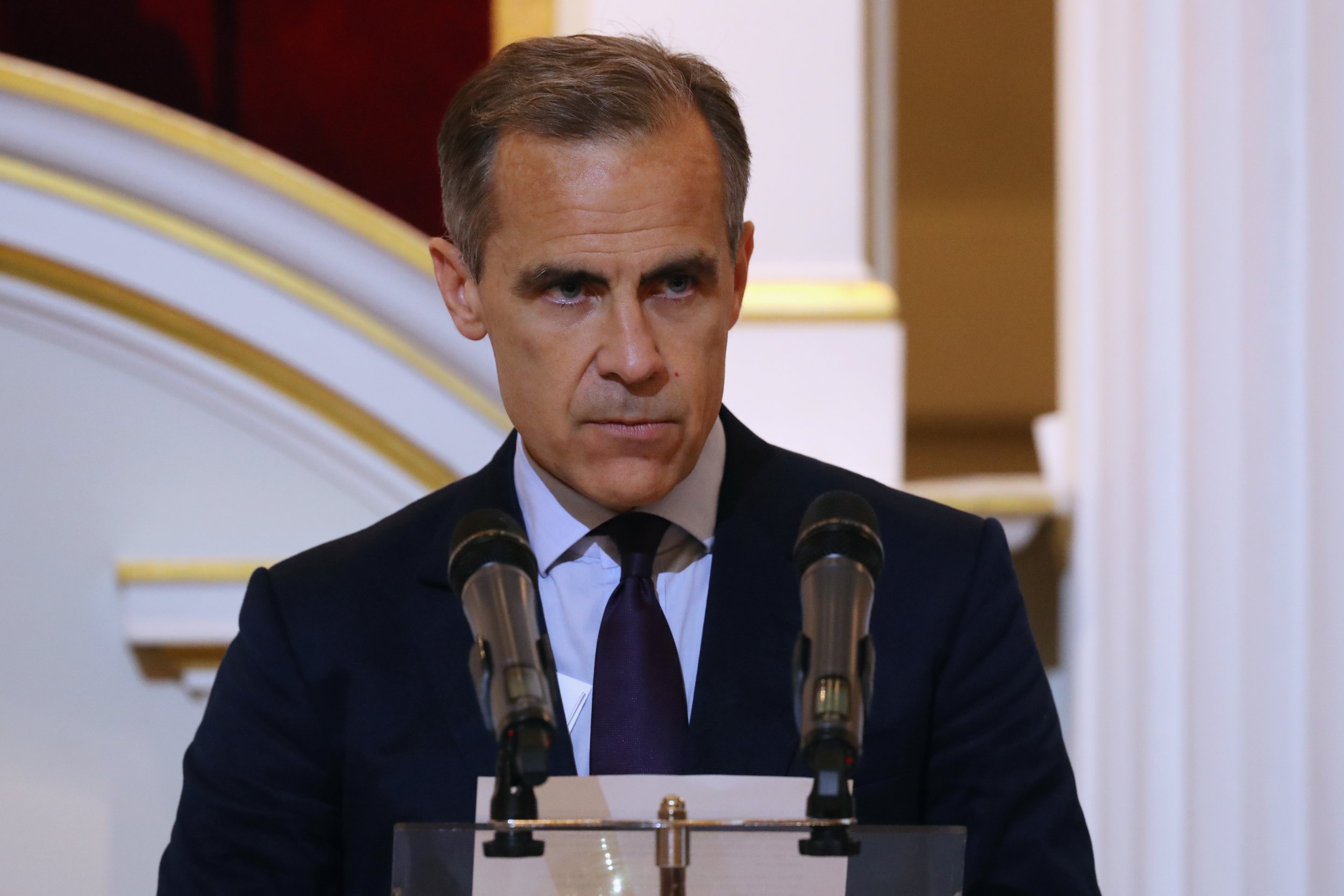
On Thursday, the Bank of England's Monetary Policy Committee will vote to keep interest rates at 0.25 percent and continue with its programme of "quantitative easing" (QE). The announcement comes after a couple of weeks of unprecedented debate between politicians and the Bank of England over the future of monetary policy.
Theresa May's speech at the Tory party conference in October included a surprising recognition of what many critics have long been a rguing: "While monetary policy with super low rates and quantitative easing have provided emergency medicine, we have to acknowledge some of the bad side effects. People with assets have got richer, while people without have not… A change has got to come."
After the PM had thrown her punches, a number of senior Conservative MPs lined up to publicly criticize the Bank of England. The media speculated that Carney might leave his role early due to the attacks he was getting, although those rumors were quashed this week when he insisted he would actually stay longer than originally planned.
But it's clear that May was making a valid point. QE has increased inequality and had negative side-effects. It benefits the top 10 percent of the population with an artificial increase in wealth, with limited benefits for anybody else. Its effects are political and need more scrutiny from politicians. And the significance of such a senior politician making these remarks shouldn't be underestimated. Over the last couple of decades there has been a broad consensus that the Bank of England should be left to carry out monetary policy in total isolation from the government's fiscal policy. That consensus is beginning to break.
But the PM and her supporters were simply pointing the finger of blame at the Bank rather than acknowledging alternatives are on the table. Other commentators pointed out that May's comments distract from the role that fiscal policy — taxation and spending — has played in increasing inequality, and use the Bank of England as a scapegoat. Perhaps they can now be pushed to truly engage in the debate around the problems with monetary and fiscal policy, and look at the promising alternatives on the table.
Many economists are pointing out that monetary policy around the world is in an intellectual crisis. QE is increasing inequality, and low interest rates simply encourage more borrowing in an economy burdened with dangerous levels of private debt. The tools of monetary policy are broken. It's time to rethink the Bank's mandate and tools. Following the criticism coming from the Prime Minister's office, you'd be forgiven for not knowing that it's actually the government's responsibility to set the mandate of the Bank and the tools it can use. So if May and Philip Hammond want to rethink the role of monetary policy in building a more balanced and fair economy, they alone have the power and authority to do so.
They could start by looking at the question of "corporate QE." The Bank of England revealed details of its plans to buy £10 billion ($12.3 billion) of corporate bonds (the debt of large corporations) through its new QE programme. It follows a similar programme of corporate QE being undertaken by the European Central Bank, which has come under criticism. Carney explained that to qualify, the companies would have to make a "material contribution to the U.K. economy." So many were shocked when the list included foreign-owned corporations with very limited U.K. operations, such as Apple and AT&T. It strikes many people as extraordinary that the Bank should be picking and choosing companies like this at all. David Blanchflower, a former MPC member, described the Bank's corporate bond purchases as "unmandated fiscal policy."
If central banks are picking corporate bonds to buy with the newly created money, why can't it try harder to get that money directly into the real economy? Rather than pump money into financial markets, economists and campaigners are calling for new money created via QE to be spent through the government into the real economy on either investment in infrastructure, housebuilding, or a cash payment to citizens. Known as "QE for People" or "monetary financing," under this proposal, new money would be created by the central bank — just like QE — but would then be spent directly into the economy by the government. This would boost investment, employment, and incomes. This approach would also require the Treasury and Bank of England to think through how monetary and fiscal policy should work together to create a fairer, more balanced economy.
This might sound radical, but compare it to the current extraordinary situation. Today, it's considered good and desirable if banks create money, regardless of whether they use it to lend to businesses or to blow up property bubbles. It's acceptable for central banks to pump billions of newly created money into financial markets, or uses it to lower the cost of corporations that are already sitting on huge piles of cash. However, it's taboo to suggest that the central bank could create money and get this money into the real economy through government spending. It's time to break that taboo.
Fran Boait is executive director of Positive Money, which campaigns for a fair, democratic and sustainable money and banking system.
Uncommon Knowledge
Newsweek is committed to challenging conventional wisdom and finding connections in the search for common ground.
Newsweek is committed to challenging conventional wisdom and finding connections in the search for common ground.
About the writer
To read how Newsweek uses AI as a newsroom tool, Click here.








